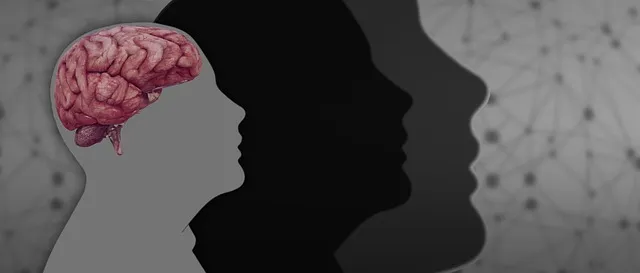Englewood Kaiser mental health programs provide comprehensive support for individuals dealing with loss, grief, and bereavement through evidence-based counseling, stress management workshops, and personalized coping strategies. Using CBT, EMDR, and other holistic approaches, these programs help clients process emotions, build resilience, and gradually restore balance and well-being after significant loss.
Loss, grief, and bereavement counseling are essential services that help individuals navigate the complexities of emotional healing after a significant loss. This comprehensive guide explores these topics, offering insights into their understanding and the critical role counseling plays in managing difficulties associated with grief. We introduce Englewood Kaiser Mental Health Programs, known for their supportive services, and discuss identifying when professional help is necessary. Furthermore, it delves into effective strategies employed by bereavement counselors to provide comfort and guidance during challenging times.
- Understanding Loss, Grief, and Bereavement: A Comprehensive Overview
- The Role of Counseling in Navigating Difficulties After Loss
- Englewood Kaiser Mental Health Programs: An Introduction to Supportive Services
- Identifying When Professional Help is Necessary for Grief Management
- Effective Strategies and Techniques Employed in Bereavement Counseling
Understanding Loss, Grief, and Bereavement: A Comprehensive Overview

Loss, grief, and bereavement are complex emotional experiences that vary greatly from person to person. Understanding these processes involves recognizing that loss can stem from various sources, including the death of a loved one, significant relationship changes, or even the loss of one’s health or identity. Englewood Kaiser mental health programs offer a safe space for individuals to navigate this challenging journey.
Through comprehensive counseling services, these programs aim to equip clients with effective coping skills development and empathy building strategies. The goal is not to rush the healing process but to support individuals in processing their emotions, memories, and experiences related to loss. Additionally, stress management workshops organized by these mental health programs provide valuable tools for maintaining resilience during times of profound change.
The Role of Counseling in Navigating Difficulties After Loss

After a significant loss, counseling can serve as a lifeline, offering individuals a safe and supportive space to process their grief. The role of professionals like those at Englewood Kaiser’s mental health programs is crucial in helping folks navigate this challenging period. They provide guidance tailored to each person’s unique experience, fostering emotional well-being promotion techniques that cater to individual needs.
Through evidence-based practices, counselors assist clients in understanding and managing their emotions, coping with the void left by their loss, and eventually rebuilding a sense of normalcy. A comprehensive risk assessment for mental health professionals is essential to ensure they can handle complex cases sensitively, incorporating cultural sensitivity into their approach to meet diverse client needs. This holistic care facilitates a healthier journey through bereavement.
Englewood Kaiser Mental Health Programs: An Introduction to Supportive Services

Englewood Kaiser Mental Health Programs offer a range of supportive services designed to assist individuals navigating loss, grief, and bereavement. These programs recognize that each person’s experience with sorrow is unique, thus providing tailored interventions to meet specific needs. Through individual therapy sessions, clients find safe spaces to process their emotions, gain insights into their coping mechanisms, and develop effective strategies for managing the complex journey of mourning.
In addition to traditional therapy approaches, Englewood Kaiser integrates evidence-based practices such as stress reduction methods, mindfulness meditation, and mental wellness coaching programs. These initiatives empower individuals to cultivate resilience, enhance emotional intelligence, and find moments of peace amidst challenging circumstances. By combining professional counseling with holistic techniques, the programs strive to support clients in embracing healing, hope, and a renewed sense of well-being.
Identifying When Professional Help is Necessary for Grief Management

Grief is a natural response to loss, but it can sometimes become overwhelming, leading individuals to seek professional support. Recognizing when to access specialized help for managing grief and bereavement is essential in ensuring proper emotional well-being. Many people experience acute grief after a significant loss, such as the death of a loved one or a major life change. While grief is a process that varies from person to person, there are signs indicating that professional intervention might be necessary.
Englewood Kaiser mental health programs offer specialized services for those struggling with complex grief. The need for professional help can arise when an individual’s daily functioning and mood management are significantly impacted by their grief. If you or someone close to you is experiencing persistent sadness, insomnia, changes in appetite, difficulty concentrating, or intense anger and guilt that interferes with regular routines, it might be a sign of complicated grief. Public Awareness Campaigns for mental health can play a crucial role in encouraging people to seek help early on, as proper risk management planning involves recognizing these indicators and taking proactive steps towards healing.
Effective Strategies and Techniques Employed in Bereavement Counseling

In addressing loss, grief, and bereavement, Englewood Kaiser mental health programs employ a range of effective strategies and techniques tailored to individual needs. These include evidence-based therapeutic approaches such as cognitive-behavioral therapy (CBT), which helps individuals challenge negative thought patterns and replace them with healthier coping mechanisms. By focusing on present-day functioning and building resilience, CBT offers practical tools for managing symptoms of anxiety relief associated with bereavement.
Additionally, trauma support services are integral to the counseling process, acknowledging that grief can often be compounded by past traumatic experiences. Through techniques like eye movement desensitization and reprocessing (EMDR), clients work through these historical traumas, fostering a sense of healing and integration. Beyond anxiety relief and trauma support, confidence boosting strategies are also incorporated to empower individuals as they navigate their grief journey. This holistic approach ensures that bereaved individuals receive comprehensive care, enabling them to process their loss and gradually regain a sense of balance and well-being.
In light of the above, it’s clear that both personal resilience and professional support play vital roles in effectively managing loss, grief, and bereavement. While engaging in self-care practices can provide initial comfort, seeking help from specialized services like Englewood Kaiser mental health programs becomes necessary for profound healing. By understanding when to reach out and utilizing the effective strategies employed in bereavement counseling, individuals can navigate their journey with support and eventually find meaning amidst loss.






